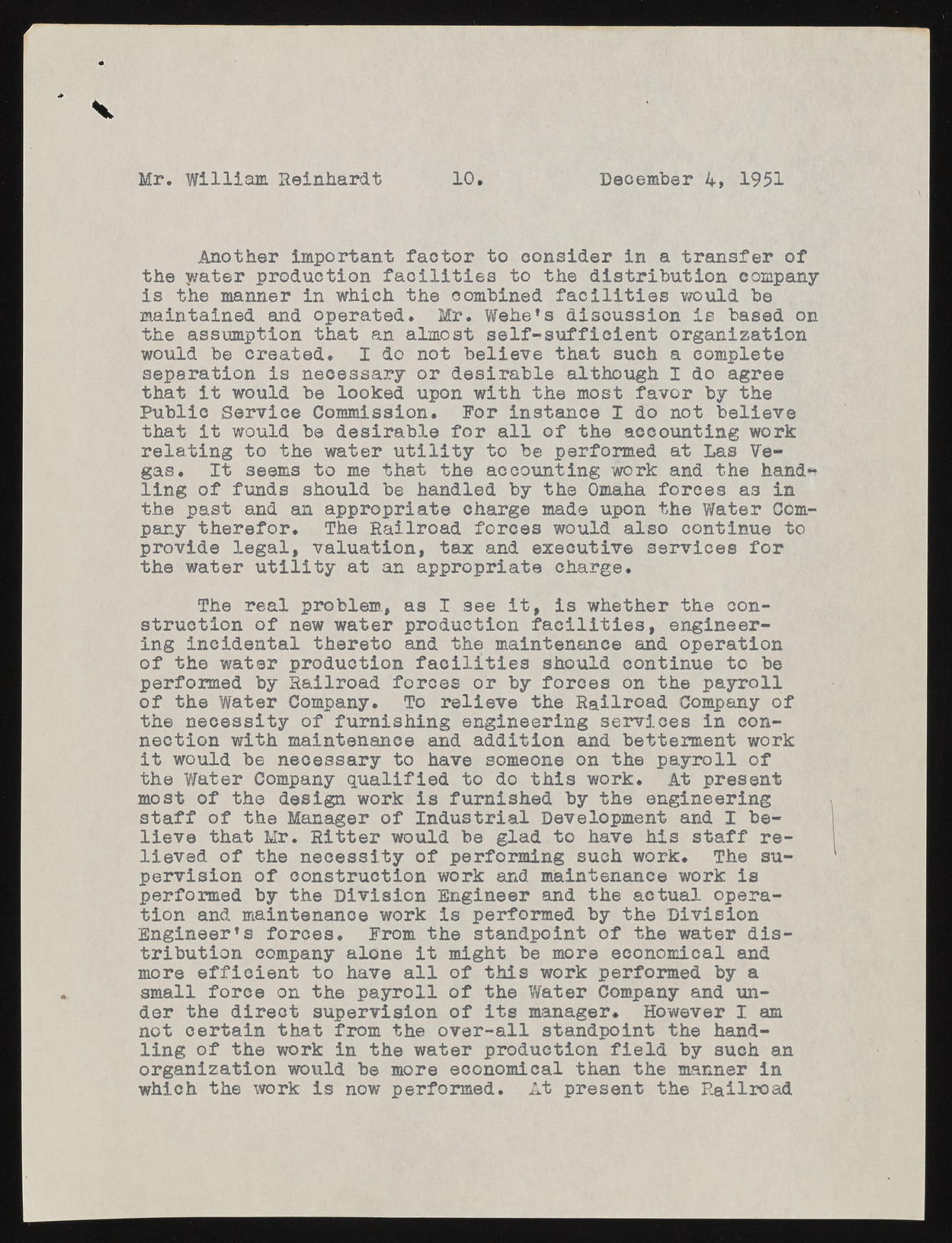Copyright & Fair-use Agreement
UNLV Special Collections provides copies of materials to facilitate private study, scholarship, or research. Material not in the public domain may be used according to fair use of copyrighted materials as defined by copyright law. Please cite us.
Please note that UNLV may not own the copyright to these materials and cannot provide permission to publish or distribute materials when UNLV is not the copyright holder. The user is solely responsible for determining the copyright status of materials and obtaining permission to use material from the copyright holder and for determining whether any permissions relating to any other rights are necessary for the intended use, and for obtaining all required permissions beyond that allowed by fair use.
Read more about our reproduction and use policy.
I agree.Information
Digital ID
Permalink
Details
Member of
More Info
Rights
Digital Provenance
Publisher
Transcription
Mr. William Reinhardt 10. December 4, 1951 Another important factor to consider in a transfer of the ym^er production facilities to the distribution company is the manner in which the combined facilities would be maintained and operated. Mr. Wehe’s discussion is based on the assumption that an almost self-sufficient organization would be created. I do not believe that such a complete separation is necessary or desirable although I do agree that it would be looked upon with the most favor by the Publie Service Commission. For instance I do not believe that it would be desirable for all of the accounting work relating to the water utility to be performed at Las Vegas. It seems to me that the accounting work and the handling of funds should be handled by the Omaha forces as in the past and an appropriate charge made upon the Water Company therefor. The Railroad forces would also continue to provide legal, valuation, tax and executive services for the water utility at an appropriate charge. The real problem, as I see it, is whether the construction of new water production facilities, engineering incidental thereto and the maintenance and operation of the water production facilities should continue to be performed by Railroad forces or by forces on the payroll of the Water Company. To relieve the Railroad Company of the necessity of furnishing engineering services in connection with maintenance and addition and betterment work it would be neoessary to have someone on the payroll of the Water Company qualified to do this work. At present most of the design work is furnished by the engineering staff of the Manager of Industrial Development and I believe that Mr. Ritter would be glad to have his staff relieved of the necessity of performing such work. The supervision of construction work and maintenance work is performed by the Division Engineer and the actual operation and maintenance work is performed by the Division Engineer’s forces. From the standpoint of the water distribution company alone it might be more economical and more efficient to have all of this work performed by a * small force on the payroll of the Water Company and under the direct supervision of its manager. However I am not certain that from the over-all standpoint the handling of the work in the water production field by such an organization would be more economical than the manner in which the work is now performed. At present the Railroad

